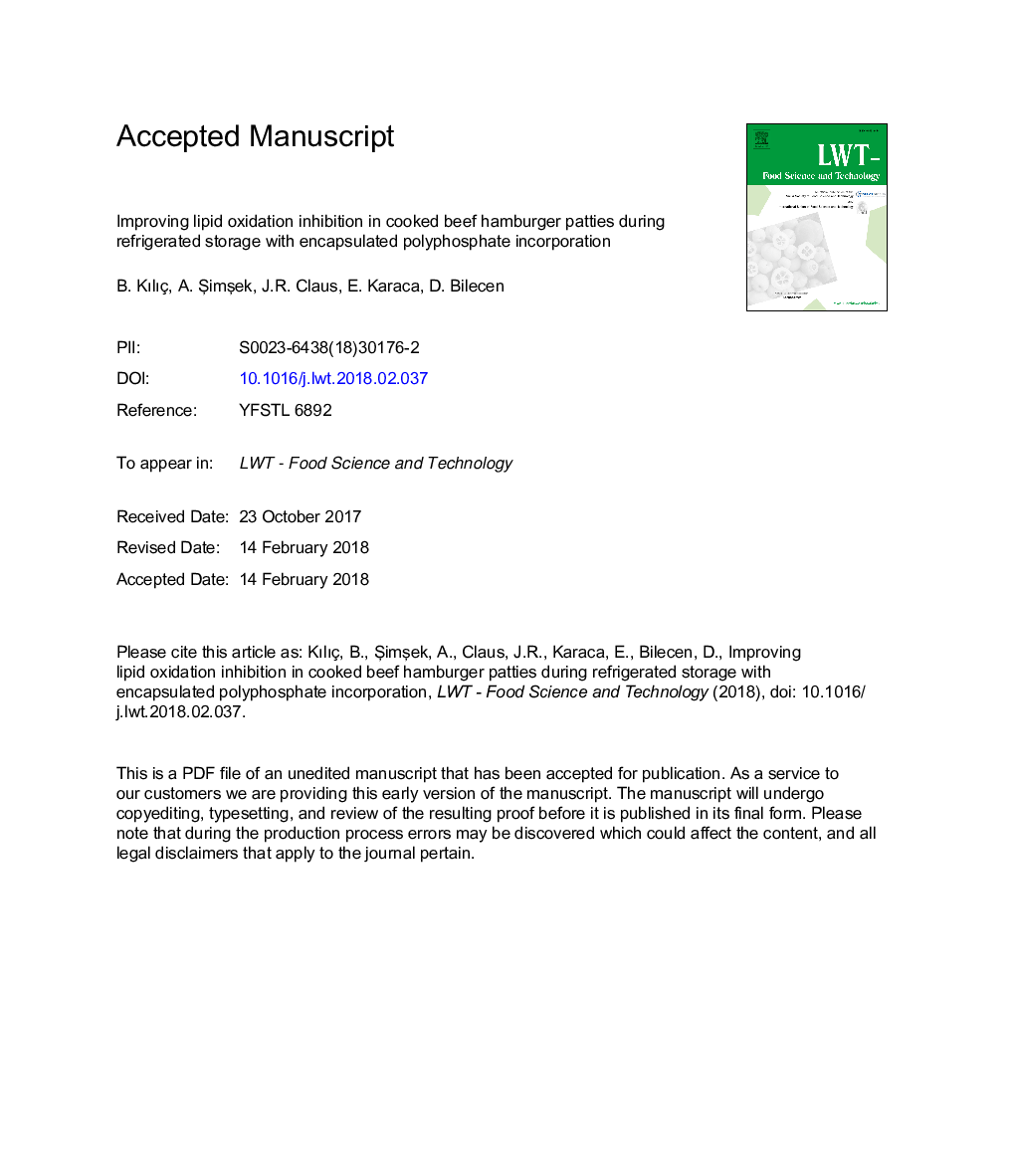| Article ID | Journal | Published Year | Pages | File Type |
|---|---|---|---|---|
| 8891273 | LWT - Food Science and Technology | 2018 | 28 Pages |
Abstract
This work evaluated the influence of added encapsulated (e) polyphosphates (PP; sodium tripolyphosphate, STP; sodium pyrophosphate, SPP) levels (0, 0.25, 0.5%) on lipid oxidation inhibition in beef patties during 120â¯d refrigerated storage. STP incorporation led to lower (Pâ¯<â¯0.05) cooking loss (CL) compared to SPP, caused similar CL with control. Added ePP level had no impact on CL. Although ePP level was not a factor on manufacturing day, increasing eSTP or eSPP level increased or decreased pH respectivelly at the end of storage (Pâ¯<â¯0.05). Although PP type and ePP level did not influence some physico-chemical (fat, texture, fatty acids) parameters, STP increased moisture, ash and redness and decreased protein, lightness and yellowness compared to control and SPP incorporated patties (Pâ¯<â¯0.05). Regardless of encapsulated or not, SPP enhanced lipid oxidation reduction rate compared to STP (Pâ¯<â¯0.05). Using 0.25% ePP provided lower (Pâ¯<â¯0.05) lipid oxidation than 0.5% unencapsulated PP. Hovewer, 0.5% ePP had no further impact on advancing lipid oxidation inhibition.
Keywords
Related Topics
Life Sciences
Agricultural and Biological Sciences
Food Science
Authors
B. Kılıç, A. ÅimÅek, J.R. Claus, E. Karaca, D. Bilecen,
